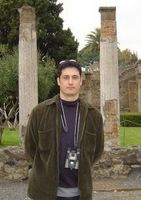
DOUBT: A PARABLE
'The truth makes for a bad sermon. It tends to be confusing and have no clear conclusion"
-Father Flynn, on why he uses parables
What do you know for sure? What is it that you know with absolute certainty? What have you done to help promote the "truth" you are sure about? What liberties have you taken to ensure that good and truth win out over falsehoods and evil?
In John Patrick Shanely's Tony and Pulitzer prize winning play "Doubt" the natures of truth, certainty, good, evil and changing social mores are laid out on a slab like a body laid out for autopsy.
Set in a Catholic school in the Bronx, 1964, the center of the play is Sister Aloysius, who's suspicions about a possibly sexual relationship between a young and charismatic priest and a student sets the story in motion.
She is, in a world where certainty and truth are being broken down and redefined, a woman and nun whose convictions about right and wrong, good and evil and guilt and innocence are unassailable. Played magnificently by Cheri Jones, Sister Aloysis has in her employ, a young, innocent and dedicated young teacher, Sister James.
Sister James is caught in the middle of the clash of views, convictions and strong personalities of the Nun and Father Flynn (played expertly by the great Irish actor Brian F. O Byrne). The battle is not only for truth, but for the mind and heart of this impressionable young teacher.
To complete the cast the mother of the boy in question (played by Adriane Lenox) has a revealing conversation with Sister Aloysis and her doubts are centered on what is good for her son.
The dialogue is engaging, riveting and better than any new play I have seen in a long time. The words are like scalpels opening the human soul and brain with precision. The dialogues are a series of heated conversations between the four main characters and there are two monologues by Father Flynn in the form of sermons to his flock (dealing with doubt and gossip).
Shanely's genius is twofold, he communicates the points of view of all the characters without indulging any of them. He also makes the audience an integral part of the show and leaves them in the delightful and frustrating position of judge and jury. It is the reflection of Doubt by the audience that makes it stand apart from other shows.
The show is eloquent, angry, artful. At the end of this one act, 90 minute tour de force of human emotion, we are left wondering what the nature of certainty, belief, faith and doubt truly are and what we might do in the pursuit of the truth, even perhaps "stepping away from God to do his work."


